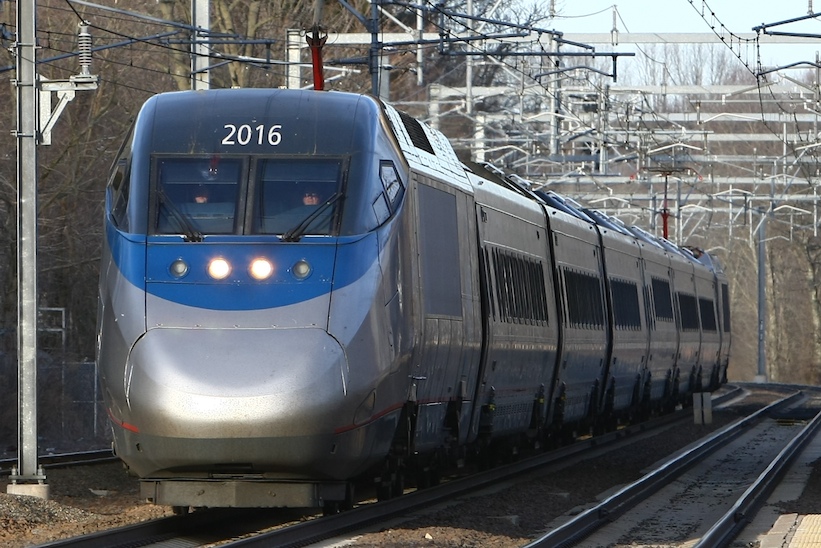Earlier this month, I posted an excerpt from The Romance of the Rails, by Randal O’Toole. It’s a book I haven’t yet read, but based on what I’ve heard, his analysis of the state of US and Canadian passenger rail is both savage and accurate — as in, we’re insane to subsidize long-distance or high-speed rail for the wealthy out of the taxes levied on the poor. Recently, Trains columnist Fred Frailey got a chance to chat with O’Toole about his work:
That was one of the pleasures of reading your book, to discover you are a lover of trains and railroads, and that you marry this with a contrarian way of thinking. Do you take perverse pleasure in that combination? Oh, not at all. To me, it’s really sad. I wish I could support passenger trains, and I do support them as far as riding them and things like that. But I know enough about government subsidies to know that they reduce overall productivity and usually end up taking from the poor and giving to the rich. The people who are riding the Acela are not people in need of government handouts. The people who are riding light rail and things like that are not the poor, by and large.
What is the future of the long-distance trains? The role they fulfill is giving people access to scenery they can’t see in any other way, and really, it ends up being something for the wealthy. I think the Rocky Mountaineer model is the future of long-distance trains, and if you look at the United States, where can we have a Rocky Mountaineer? Certainly, Oakland to Denver, probably Oakland to Los Angeles, and after that, it gets pretty iffy. They would become cruise trains.
You seem almost as uncharitable towards the short-distance passenger trains. Amtrak does its best to deceive people about how well these trains do, for example, counting state subsidies as “passenger revenues,” in order to make itself eligible for more subsidies. I wouldn’t mind short-distance trains if they worked, but the Cascades, the California service, those trains aren’t really doing anything. A lot of money is spent carrying not that many people.
[…]
Statistics of yours that struck me are that public transit paid 90 percent of operating costs in 1964 from fares and just 32 percent today. Why not try to make the rail part of public transit more viable? You don’t address that in your book. You can’t make it more economically viable, simply because buses are so much better in every respect than rails. If you take the rail lines, and pave them over, and turn them into busways, you’ll be able to move more people, faster and cheaper and with far lower maintenance costs. Even if you could make the rails pay for themselves, since the buses are so much cheaper, why would we bother?
You seem most upset at places like Orlando and Dallas and Nashville, where commuter rail or light rail began but so few seem to ride. It this money thrown to the wind? I think so. Why is it that we allowed steam to change to diesel, sailing ships to steam ships — all these different technological evolutions to take place — but when it came to passenger rail, we said, “Halt, we don’t want more technological change.” The answer is threefold. It’s nostalgia. It’s people who are making money from wasting money, such as contactors — crony capitalism. And it’s accidents of history. The accident of history affecting urban rail transit was in 1973. Governor Francis Sargent of Massachusetts asked Congress to let cities substitute capital investments in transit for interstate highway grants. Congress said yes, but you can’t spend that amount of money on new busses. Instead, cities such as Buffalo, Portland, and San Jose built new rail lines with money from cancelled freeways because they are expensive and could use up those federal dollars. That’s what started the light-rail revolution, not because it was cheap, but because it was expensive.




